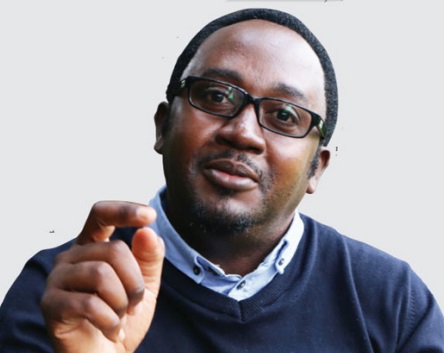
As frustration grew, Minister Kasaija changed tone. He said it is not true that the government does not have money to fund the election. Instead, on Jan.28, he told MPs who sit on the Parliamentary Affairs Committee on Legal Affairs that the Finance Ministry is facing a revenue shortfall and therefore will most likely not be able to meet the “high demands” of the Electoral Commission. He said the EC must cut its budget.
He told the MPs that his technical officers in the Finance ministry together with their counterparts in the EC would look through the EC’s budget for the 2021 general election “to see where we can reduce.”
Some MPs were unhappy with the minister’s proposal and even accused him of interfering with the work of the Electoral Commission.
“When you say you are reducing, are you not disabling the commission?” said opposition MP Medard Lubega Sseggona, of Busiro County, “The experts in this country on elections are telling you what they need and you’re saying no.”
“No. All we are saying is that we could still carry out the same activity with less money,” Kasaija said.
Byabakama appeared unimpressed by the Minister’s pitch but offered a diplomatic response: “It’s a difficult task but we are going to see what we can do and get back to the finance ministry.”
Electoral Commission wasteful
Voices familiar with national election financing and expenditures jumped in.
“It is not about cutting the budget here or there; it is about rationalizing the budget,” said
Crispin Kaheru, the former head of CCEDU who now signs off as an independent election expert.
Kaheru told The Independent in an email that if the EC procured biometric technology (worth Shs 90 billion) for the 2016 general elections and that technology is still seen to be functional, why should we procure new biometric kits (for another Shs 115 billion) again?
“May be we should be talking about upgrading, improving or adding onto what is already existent rather than completely buying new biometric machines.”
Secondly, we have over Shs80 billion dedicated to printing ballot papers from abroad. Why don’t we explore printing those ballot papers here in Uganda?
“We have the buy Uganda, build Uganda (BUBU) policy, but we don’t seem to implement it on things that matter.”
Kaheru says the money for printing ballots alone can ably reinvigorate Uganda’s economy – create more jobs and generate more tax revenue for the country.
Kaheru asks: “Why should we give away this money to foreign companies to spur their countries’ economies – when our economy is not doing all that well?” He says the government should also exempt ballot-printing services from being taxed.
“In this current EC budget, there is approximately Shs50 billion going to URA as tax on ballot paper printing. In a way, you would say that this is government taxing itself,” he said.
Kaheru also says a tax exemption for ballot-printing services would scale down the EC budget.
Kaheru said: “Elections are largely managed by humans and not machines. The quality of humans at every stage of an election determines the quality of an election. We, therefore, must invest more in building the civic competence of the electorate, professionalizing election administrators and probably motivating talent to do its job with integrity.”
There is general agreement that the EC is in a dilemma because many times its budget is determined by other factors such as the number of administrative units in the country.
These have been exponentially increasing over the past decade and therefore affecting the budget of election administration.
So, not until government rationalizes the creation of administrative units, Ugandans may continue to see a corresponding increase in the election administration budget.
“Elections are an important cornerstone of democracy, but we also have to be alive to the fact that they have no direct return on investment like agriculture; tourism etc, therefore every coin that is invested in them has to be thoroughly justified,” Kaheru told The Independent.
Kaheru says the current debate could eventually impact upon the voter turnout for the 2021 general elections.
“If people think nothing has or is going to change in terms of the electoral environment, then people may not actually actively participate in the election,” he said, “If people think that 2021 may be volatile, then they will definitely stay away. If people think that there is no leveled political playing field then, people will keep off elections.”
“I think the duty of both government and the citizens is to seek to change the electoral environment – for the better in the few months remaining to 2021,” Kaheru told The Independent.
 The Independent Uganda: You get the Truth we Pay the Price
The Independent Uganda: You get the Truth we Pay the Price






Yes we should postponed the elections due to this economic crisis of pandemic which left almost all country economies down!
We should divert those resources to bring back the economy